Who doesn’t want to be happy? We live our lives doing things that we think will make us happy. We often focus on delayed gratification, or we postpone our happiness until we reach that fat bank account, that perfect partner, etc. But the thing is, happiness often comes in small doses... from small, everyday things. So let’s talk about what habits make you happy.
How to Be A Happier Person:
- Gratefulness
- Optimism
- Smile a lot
- Have high-quality friends
- Weed out bad friends
- Take breaks often when you work
- Set SMART goals
- Learn something new
- Take care of yourself first
- Understand the value of helping others
1. Gratefulness
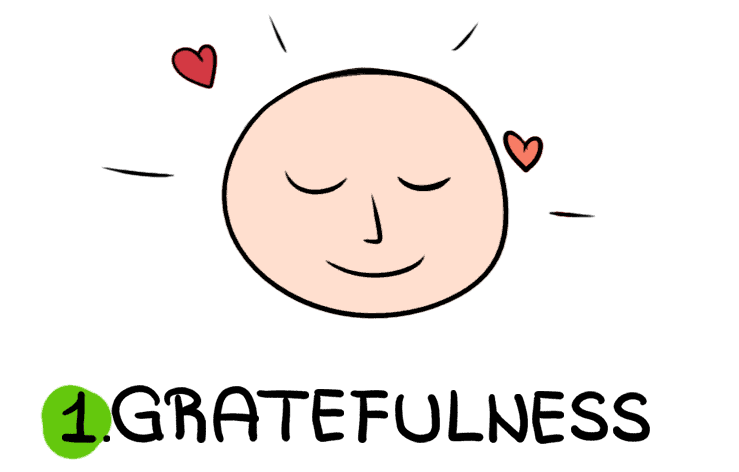
If you can wake up and just be grateful about something, you're automatically going to be happier today. Have you ever woken up thinking things like, "today's going to be a bad day,” “bad things are going to happen today,” or “I'm not going to enjoy doing the things I have to do today”?
These thoughts program your day to be gloomy from the start by affecting your psyche, making you grumpy and cranky throughout the day. Furthermore, grumpy people are less likely to be treated nicely. People tend to act like mirrors - if we see someone smile, we smile back at them - if we see someone frown, it’s like they’re darkening our day as well, and we frown back. So if you spend your day displaying grumpy body language, others will reciprocate that, making your day even worse.
If you instead start your day with gratefulness and positivity, you're already setting your brain up to think of ways to be happier. Reminding yourself of the things that you’re thankful for is a great way to make sure every day is a happy day.
2. Optimism
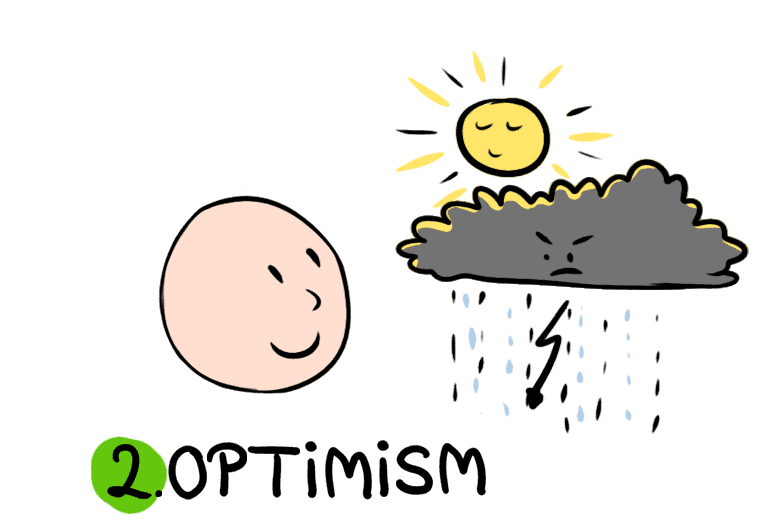
Optimism means having a positive view of the world and the future outcome of it. Realistic optimism is something that everyone should strive for: having a balance between thinking that things are going to be great, and knowing that they are not going to do themselves; we’re also going to have to get work done to get that positive outcome.
Focusing on gratefulness and optimism together at the start of each day is a great habit to increase your overall happiness in life. Affirmations may help: “Today is a great day to work on my dreams and I’m going to do everything in my power to make them come true” and “I have a full body, a great mind and every step that I take is getting me closer to my goals” are great thoughts to start your day off with.
3. Smile a lot

There are many psychological reasoning behind forcing yourself to smile, but it’s always better to put yourself into situations that you know will make you smile. For example, you can stop by a friend’s house to say hello or lay down on your couch and watch some comedy. Happy people love putting themselves in situations where they will smile a lot. Whether that is for you, be it setting up a family reunion so you can see your family more often or traveling to see your cousin, anything that makes you smile is going to brighten your day.
4. Have high-quality friends
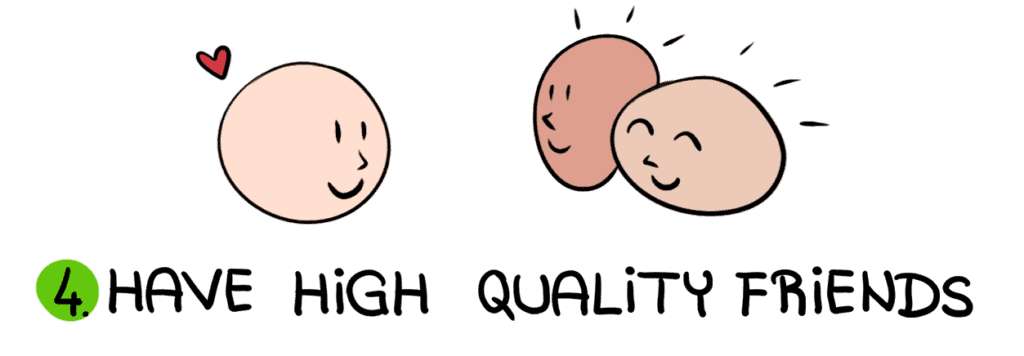
It’s always better to have 2 or 3 high-quality friends than to have 20 “drinking buddies”. There are a lot of people in this world and you might not resonate with all of them. It’s perfectly okay to have party buddies, but remember that it’s more valuable to have a few people that you know will be available for you if you need them, even if it’s 3 a.m. when you call.
It’s valuable to be able to step back and look at your friends subjectively and think, "Wow. These people are in my life for a reason. They benefit me and I love being around them.” If you can make more of those types of friendships - solid friendships that last a lifetime - you will become exponentially happier. Friends have a lot of psychological benefits that help you to network even more and become a happier person.
5. Weed out bad friends

In your search to find some high-quality friends, you will meet low-quality, toxic people who just want to take advantage of you. You need to get these people out of your life.
Some people find it really hard to get rid of the bad people in their life because they don't want to be seen as pushy or rude when they're canceling plans with someone. To that, just remember that if you can avoid making plans in the first place, so you won’t have to cancel. Do what you can to avoid that person altogether and make sure you have as little contact as possible. Just getting rid of the toxic people in your life will be a huge leap towards happiness for you.
6. Take breaks often when you work
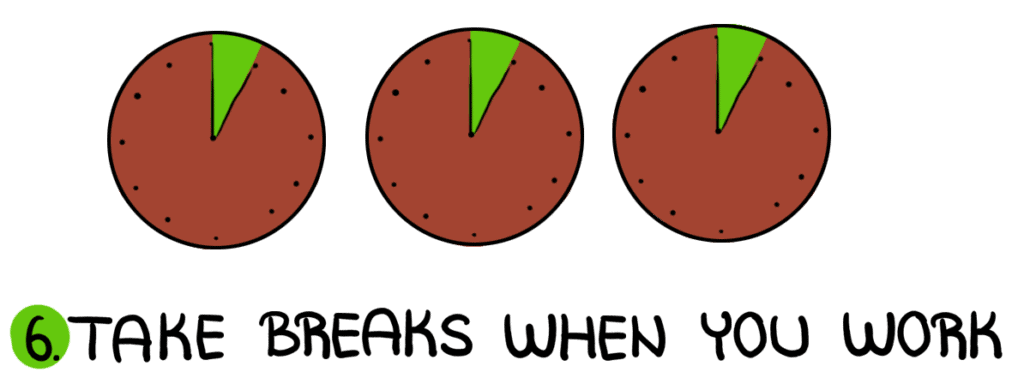
Breaks will make you both happier and more productive because they give your brain some time to refresh, which gives you more energy throughout your day. A study was conducted on two groups of people where one group didn’t take any breaks during 8 hours of work while the other group took 10-minute breaks every hour. The result was that although those who took brakes had less overall working time, they were happier and their productivity was boosted - so they actually got more work done in the end than the people who worked for the full eight hours.
7. Set smart goals

Setting goals that are achievable in a timely manner will significantly boost your motivation. There’s something really special about ticking that box in your to-do list. Setting the goal motivates you and reaching the goal brings you a lot of joy and happiness. Happy people set small goals that they can achieve throughout the day. When you do this, you will get more motivation, discipline, and success with each goal you reach - And success will boost your happiness.
SMART goals are goals that follow a specific set of requirements:
- Specific: The goal should be clear, concise, and well-defined. Rather than setting a vague goal like "get fit", a specific goal would be "run a 5K race within 30 minutes".
- Measurable: The goal should include concrete criteria for tracking progress. This allows you to identify when the goal has been achieved. For instance, instead of "saving more money", a measurable goal could be "save $5000 within a year".
- Achievable: The goal should be realistic and attainable, not something far out of reach. It should stretch your abilities but still remain possible. For example, "learn to play one new song on the guitar every month" instead of "become a concert guitarist in a month".
- Relevant: The goal should be relevant to your broader life objectives and values. For instance, if you value health, a relevant goal could be "to incorporate a half-hour exercise routine into your daily schedule".
- Time-bound: The goal should have a clear timeframe or deadline which creates a sense of urgency and promotes action. Instead of "lose weight", a time-bound goal would be "lose 10 pounds in 10 weeks".
8. Learn something new

When you’re feeling down, try forcing yourself to learn something new. Whatever it is, giving your brain some new information to chew on will boost your creativity and unlock new neuronal pathways - which in turn will help your brain be healthier and happier. Whenever you’re down, sad, or in a rut, one of the best things you can do is to learn something new.
It helps if you’re a curious person, but either way, there must be something out there that interests you. Find that. It’s not fun to learn about things that you’re not interested in. Maybe it doesn’t seem very appealing for you to learn to play the guitar, but you’ve always been intrigued by the piano - go ahead and learn how to play the piano! Just find whatever is interesting to you, and learn about it. In this internet age, new information is only some typing and a click away from you. Learning can help you get over hard times in your life - all you need to do is give yourself a break and feed your brain with some fresh information whenever you can.
9. Take care of yourself first
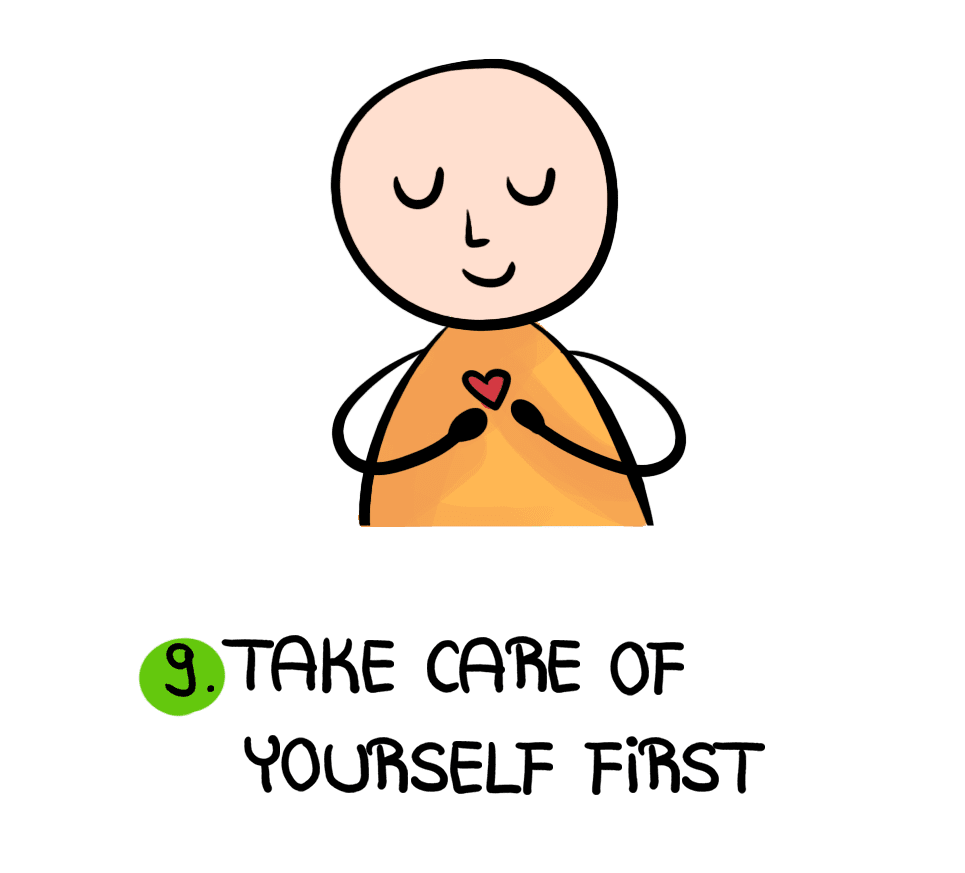
If you’ve ever been on an airplane, you know that the safety instructors tell you to put your own oxygen mask on first before you help the people around you in the event of an emergency. That's really important in personal development and in maintaining your happiness, too. You have to take care of yourself so that you are able to help other people. You can't help others if you're depressed or financially broken.
10. Understand the value of helping others
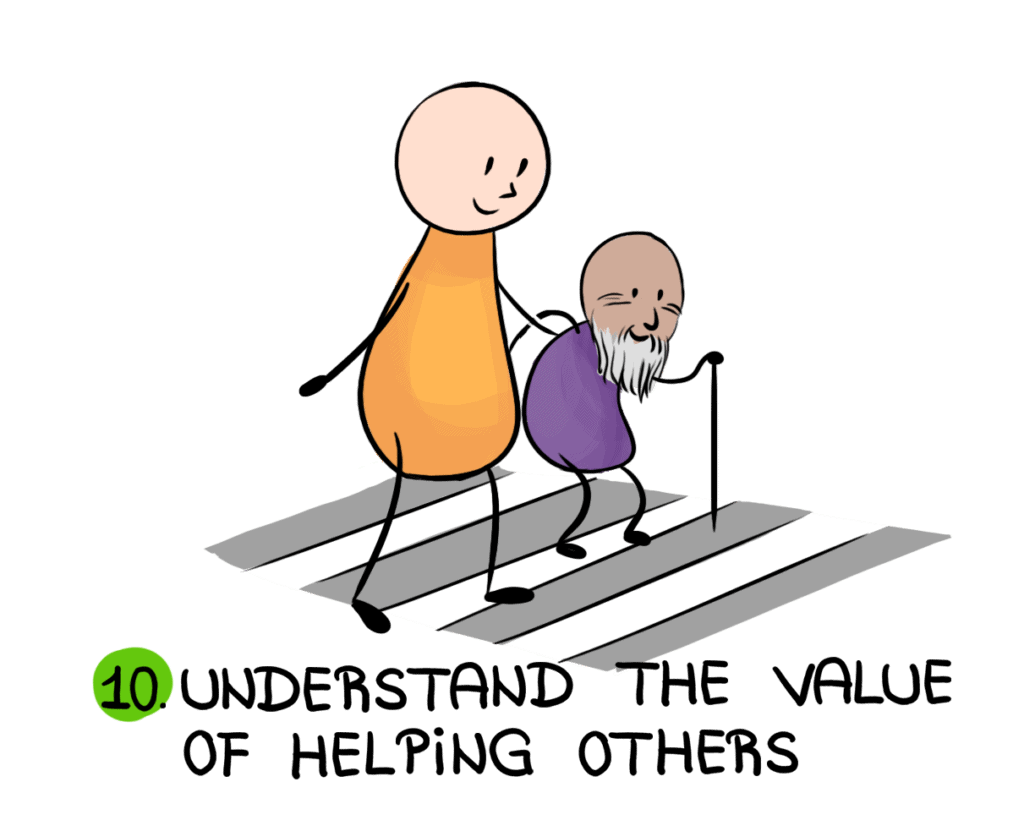
Adding value to other people’s lives is guaranteed to make you feel happier, too! If learning something new isn’t helping you to get over sadness, then try to instead focus on others. Think about the qualities you have that could help others become better themselves.
It’s important to take care of yourself before you take care of others, but some of us heal best when we do something that takes the focus off of ourselves for a little while. Instead of worrying about the internal cycle of what's going on in your mind and in your life, consider using your mental energy to help another person - this is much more productive, and it will add to both your own happiness and the happiness of others in the world, too.
